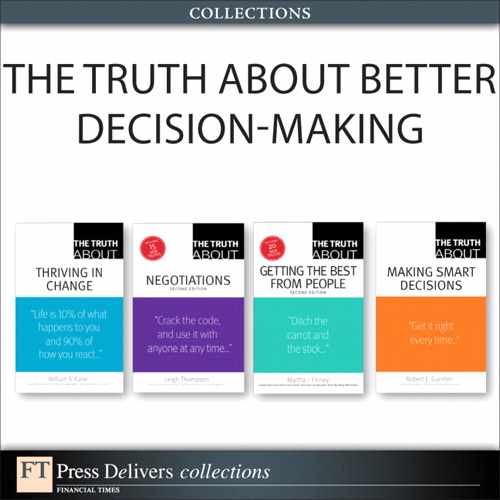Truth 37. A little adrenaline can be a good thing
Samuel Johnson once said, "When a man knows he is to be hanged in a fortnight, it concentrates his mind wonderfully." This can be true, particularly in critical, time-sensitive decisions. The adrenaline rush of the fight-or-flight response has kept human beings out of the jaws of saber-tooth tigers or allowed jet fighter pilots to pull out of a crash. Stress can lead to improved performance.
Decision making can improve under stress up to a point. It sharpens the mind and keeps us focused. But past that point, stress becomes counterproductive and leads to poor decisions. It results in an "inverted U," where the benefits of stress level off and then go negative. We can see an analogy to physical stress in athletic performance. An athlete who is pushed with a moderate amount of stress will achieve higher levels of performance. But too much stress will lead to injuries and burnout. Performance will suffer.
Stress can lead to a tendency to oversimplify decision making. It can lead to working memory loss and narrow focus. It can lead to a limiting of options and premature closure of alternatives. When time pressure is high, for example, decision makers tend to make a decision without generating or evaluating all the possible alternatives.23 One research study asked 40 subjects to spend five hours engaged in a forest fire fighting game on the computer. Half had to operate with the added stress of a loud noise, while the others had quiet. The ones with the added stress took a more streamlined approach to decision making, while those with less stress used more in-depth analysis.24 Another study asked student subjects to evaluate the attractiveness of a set of student apartments based on characteristics such as size and traveling time to the university. As time pressure increased, they tended to give more negative weight to one factor—traveling time—rather than weighing all the alternatives.
Of course, a narrow focus can be a good thing if you're in a real emergency. It might allow you to focus on what is really important as your jet is careening out of control. But pay attention to the impact of stress on your decisions. If the decision is not time critical—you're facing a loaded gun or have to make a buy or sell decision on a stock at this instant—then take a moment to diffuse the stress if it is hampering your ability to make a decision. Take action to prevent panic and calm your mind. Take a deep breath, go for a walk, or otherwise break the cycle of panic, slow your heartbeat, and settle your mind. A little stress can be a good thing, but too much can interfere with your decision making.
